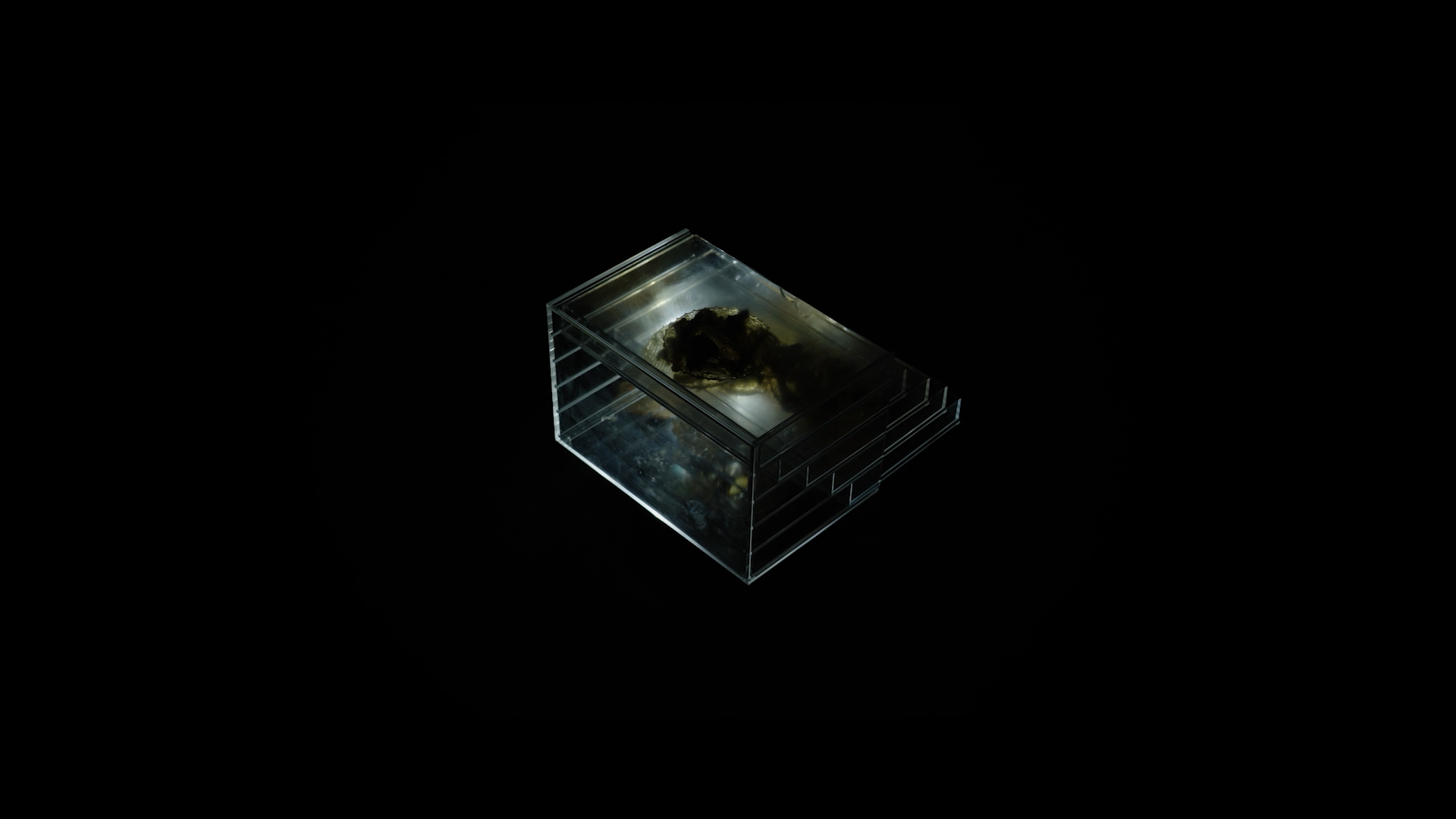1983
This work is in collaboration with Azfar Sidek. We were both born in the year 1988. Five years before, the state revealed a ‘crisis’ that was probably directed at our mothers in different ways. This work is a science fiction film that attempts to revisit this ‘crisis’ during current times. I invited Azfar Sidek to send me clips of his daily interactions as a security guard. The premise of the film was to juxtapose these images with similar images that I had previously shot for another project about labour. The project does not attempt to speak on behalf of our mothers. It is speculation about how the purported ‘crisis’ has transpired. The project is largely derived from ideas presented by Geraldine Heng and Janadas Devan in the essay, State Fatherhood: The Politics of Nationalism, Sexuality, and Race in Singapore.In 1983, amidst Singapore’s obsession with productivity, the then Prime Minister of Singapore, Lee Kuan Yew addressed another issue that concerned a different sort of productivity. The concern was that graduate mothers were not reproducing at ideal birth rates. Many speculate that this is due to earlier policies that discouraged families from having more than two children. This in the eyes of the Prime Minister seemed like a cause for concern as graduates were not producing offspring who would be capable enough to contribute to Singaporean society. According to the state, the supposed “talent pool” was not being “replenished”.
According to Geraldine Heng and Janadas Devan, this was a crisis concocted by the state that possessed the subtext of potential racial imbalance. By coincidence, graduate mothers who were not “doing their part” were mostly upper and middle class Chinese women while working class women of Malay and Indian descent were non-graduates with “inordinate reproductive urges”.1
By presenting this “crisis” and the attempted remedy, the state enforces balance and status quo. The Singaporean female is made to feel that she has to perform certain duties to prevent any destabilisation in the “talent gene pool”. The reproductive system becomes another site of production and targets have to be met by various “operators” from different communities.
The body is seen to possess the potential to disrupt state regulation. This potential problem as viewed by the state must then be “logically” solved through scientific means which in this case adopts the language of eugenics.
“The language of eugenics is precisely for Lee(Kuan Yew) a language of efficient automation-a syntax and grammar congenitally identical to his own, and to that routinely employed by his ministers and cohorts in public discourse-the appeal of eugenics residing for him, in its promise, however fugitive it might seem for others, of state of the art biological replication: a superior technology to guarantee the efficient manufacture of superior quality babies(the machine of eugenics confirming the body machine).”2
The reduction of human bodies into machines is a perspective that the state employs to envision its control over social reproduction. The reproductive system is forcefully transformed into a mechanical process for the good of the state. However, machines can only operate when the right instructions are being carried out. Any form of frivolous behaviour will not contribute to how the machines will function. The objective is to “regenerate” talent and instructions are meted out through the National Day Rally. Implicated individuals must take caution to correct this “mistake”.
“Most pointedly, a machine presupposes- indeed, requires-an operator, since a machine commonly exists in the first place in order to be operated: relieving all suspicion that full supervisory control may be impossible(exorcising, that is, the spectre of desire, instability and unconscious from human formations), the trope of the machine comfortingly suggests that what eludes, limits or obstructs absolute knowability, management, and control, can be routinely evacuated.”3
Similar to operations in a factory, the implication is that bodies must function purposefully without distraction to produce. The conflation of the body as a machine could in this case be seen as another productivity measure. It is also not enough for the operator to just operate. The operator must also become the machine that reproduces.
Despite the heavy theoretical aspirations of this project, the core of the project is derived from the collaboration of perspectives presented through the images. Mine is of a cold distance while Azfar Sidek provides a closer view. This also speaks of our different positions and hopefully, this comes across as being honest. The project is still in progress.




1-3. Ong, Aihwa and Peletz, Michael G. Bewitching Women, Pious Men : Gender and Body Politics in Southeast Asia. Berkeley, Calif., University Of California Press, 1995.
